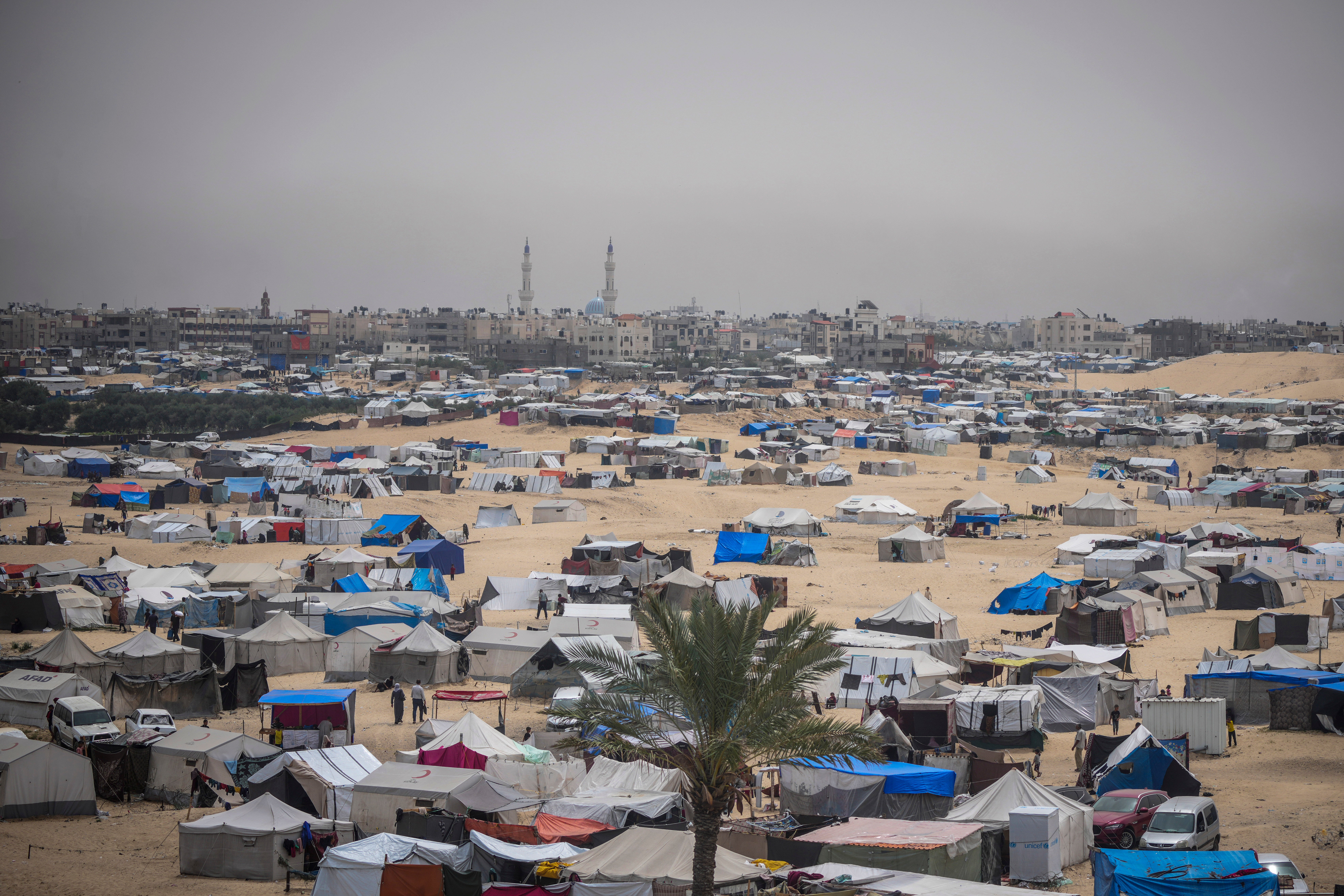South Africa again requests emergency measures from world court to restrain Israel's actions in Gaza
South Africa has urged the United Nations’ top court to issue more emergency measures to restrain Israel, saying its military incursion in Rafah threatens the “very survival of Palestinians in Gaza.”

South Africa urged the United Nations’ top court Friday to issue more emergency measures to restrain Israel, saying its military incursion in Rafah threatens the “very survival of Palestinians in Gaza.”
The request marks the fourth for additional measures by South Africa, which filed a genocide case against Israel late last year at the International Court of Justice. According to the latest request, the previous preliminary orders by The Hague-based court were not sufficient to address “a brutal military attack on the sole remaining refuge for the people of Gaza.”
At hearings in January, lawyers for Israel argued that its war in Gaza was a legitimate defense of its people and that it was Hamas militants who were guilty of genocide.
South Africa has asked the court to order Israel to withdraw from Rafah; to take measures to ensure unimpeded access to U.N. officials, humanitarian organizations and journalists to the Gaza Strip; and to report back within one week as to how it is meeting these demands.
Earlier this week, Israel issued a warning to evacuate an area of eastern Rafah where approximately 100,000 Palestinians have been sheltering. Israeli military forces have now seized the nearby border crossing with Egypt, leaving all entries and exits from the beleaguered enclave under Israeli control.
South Africa also accused Israel of violating the previous provisional measures imposed by the court. In January, judges ordered Israel to do all it could to prevent death, destruction and any acts of genocide in Gaza. Two months later, the court issued a second set of measures, telling Israel to improve the humanitarian situation, including opening more land crossings to allow food, water, fuel and other supplies.
The court also announced on Friday that Libya had asked to join the case and intervene in support of South Africa. The North African country joins Nicaragua and Colombia, which have filed their own requests to take part in the proceedings.
Separately, Nicaragua brought a complaint against Germany, arguing the European country is enabling genocide by sending arms and other support to Israel. Earlier this month, the court rejected a request for emergency measures against Berlin, but the case will continue on merits.
The war began with a Hamas attack on southern Israel on Oct. 7 in which Palestinian militants killed around 1,200 people and took about 250 hostages. The attack sparked an Israeli invasion the Gaza Strip, home to 2.3 million people.
Israel’s bombardment and ground offensives in Gaza have killed more than 34,800 Palestinians, mostly women and children, according to the Gaza Health Ministry, which does not distinguish between civilians and combatants in its figures. Much of Gaza has been destroyed and some 80% of Gaza’s population has been driven from their homes.
The U.N. says northern Gaza is already in a state of “full-blown famine.”
Bookmark popover
Removed from bookmarks